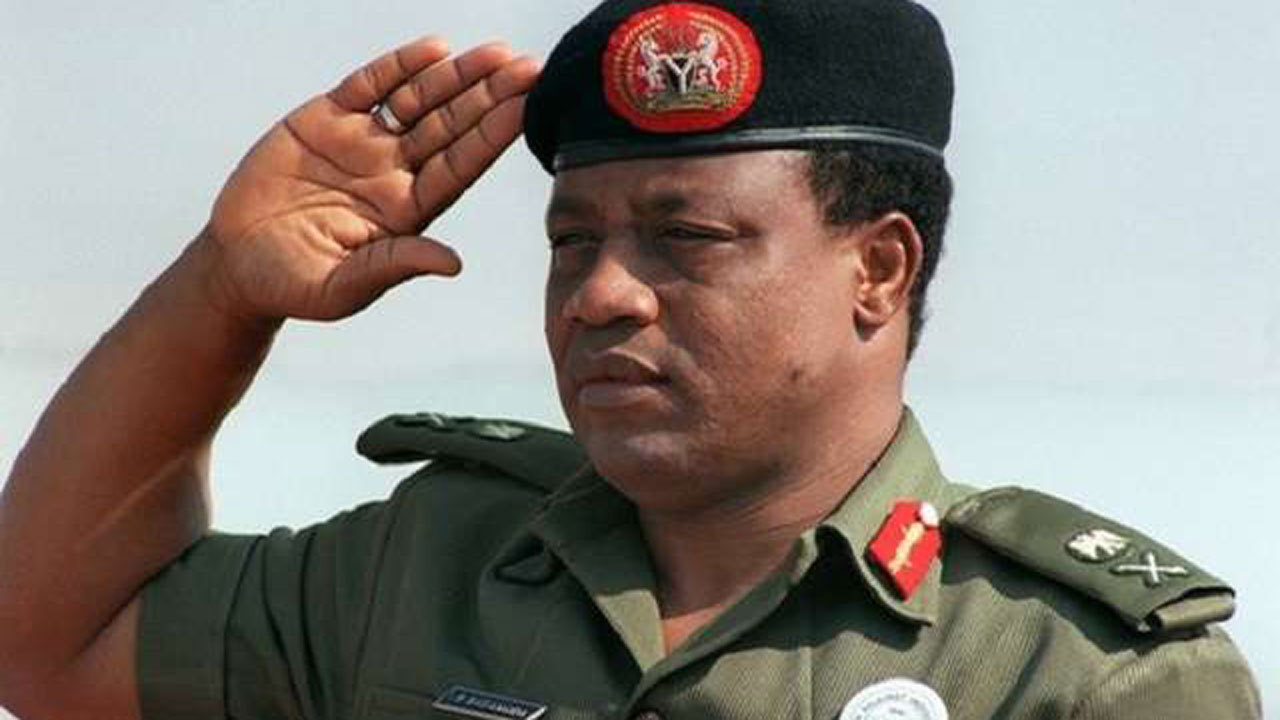By Olusegun Adeniyi
Today in Abuja, ‘A Journey of Service: An Autobiography’, by General Ibrahim Badamosi Babangida, will be publicly presented. With the book coming 32 years after Babangida ‘stepped aside’ in August 1993, it means that more than 70 percent of Nigerians were not witnesses to the events in the narratives, given our young demographics. Like everything Babangida, as I wrote last August, after the publishers sent me a digital copy (planned pages) of the book while requesting for a blurb, “opinions are bound to be divided about his (Babangida’s) interpretations of some epochal events which discerning readers could argue leave more questions than answers.”
Divided into five parts and 13 chapters, the foreword by General Yakubu Gowon highlights why Babangida’s book is important. “Given the monumental and historical changes that General Babangida presided over, it is only natural that many Nigerians of different generations would be eager to learn first-hand the motivations…and the reasons behind these far-reaching decisions, and events, some of which shook the nation to its very foundation,” Gowon wrote. But the question remains: Will readers be satisfied with the explanations provided by Babangida for some of these ‘far-reaching decisions’? Perhaps the more pertinent question is: Why is Babangida publishing his memoirs now after admittedly rebuffing earlier entreaties from friends, associates and family members to ‘tell his story’? He provides an answer in the prologue. “We live in a country where primarily uninformed commentators are often the final judges of events (that) they know nothing about,” Babangida wrote. “But because I had the honour to lead a chapter in our national journey, my brief encounter with authority and responsibility may interest those with fair minds.”
The account of Babangida’s early years is quite fascinating as he weaves post-colonial political developments with historical and cultural events that shaped his growing up in what is now Niger State. He also explained why he had to change his surname from Badamosi to Babangida in January 1964 because almost everyone he encountered assumed him to be a Yoruba man! But none more revealing is the account of his life at Bida Provincial Secondary School where his classmates included Abdulsalami Abubakar, Sani Bello, Mohammed Mamman Magoro, Garba Duba, Sani Sami, Mohammed Gado Nasko and Mamman Jiya Vatsa—men who, like him, later joined the military and, at different times, held critical positions in Nigeria.
Interestingly, last Tuesday marked the 49th anniversary of the assassination of General Murtala Muhammed in the coup led by Lt Colonel Sukar Bukar Dimka. Drafted by General T.Y. Danjuma to foil Dimka’s coup, Babangida provides revealing insights on the conversation with Dimka, a friend and one of the groomsmen at his wedding (to the late Maryam) in 1969. Not only was Babangida listed among those to be killed that day but was in fact one of the reasons for the coup. Dimka reportedly told Babangida that he was a most hated military officer for being too favoured by their superiors, especially Danjuma. “How could you be a member of the Supreme Military Council?”, Babangida recounted Dimka asking him in those tense moments inside Radio Nigeria premises in Ikoyi, Lagos. But beyond the narrative of the coup, how it was foiled and the subsequent trial of culprits, Babangida also shared insights on how Danjuma (whom most officers preferred) insisted that Obasanjo, rather than him (Danjuma), should be Head of State in the meeting held to replace the assassinated Muhammed.
As an officer during the coup that toppled the First Republic, the countercoup that brought in General Gowon, the civil war that followed and the subsequent coups in which he was a direct participant, Babangida’s accounts of that era are quite profound. For instance, it was Danjuma who proposed the elevation of the late Shehu Musa Yar’Adua from the rank of Lt Colonel to Brigadier General (later, Major General) to become the Chief of Staff, Supreme Headquarters, apparently for ethno-religious balancing in the country. This speaks to the character of Danjuma who chose to be the number three man in Nigeria when he could easily have been number one. Meanwhile, six months earlier, following the overthrow of Gowon, when senior officers canvassed that Muhammed should head a collegiate leadership of himself, Obasanjo and Danjuma, he (Muhammed) rejected the idea at a meeting Babangida said lasted several hours, insisting that as Head of State, he (Muhammed) would not share power with anyone.
Expectedly, Babangida’s book details his rise to power in 1985 as a military president and the reform programmes initiated while in office. But the most consequential chapters are ‘The Challenges of Leadership’ and ‘Transition to Civil Rule and the June 12 Saga’. The issues addressed in the first (chapter ten) include the death of Dele Giwa, a personal friend with whom he spoke often on phone and met a few times; the Gideon Orkar coup that tried to divide the country; the OIC Palaver; the 1989 SAP (Structural Adjustment Programme) riots, the Nigeria Airforce C-130 plane crash involving 151 mid-career military officers and what he described as “a deep personal sense of betrayal”—the coup involving his friend, Mamman Vatsa whose execution he sanctioned.
Readers should find out his take on Dele Giwa’s assassination and other issues but on Vatsa, Babangida painted a picture of close friendship that started from childhood and how at some point in their lives they both shared a room. “We would reach out for whatever shirt was available, irrespective of whose it was, and just wear it and head out! We were that close,” Babangida wrote while explaining how he found out later that Vatsa was always jealous of his achievements. He also explained the encounters he had with Vatsa when there were rumours about the plot and the mediatory roles played by others before the coup unravelled. “Being intermediate and senior officers, they were fully aware of the consequences of planning a coup and failing,” Babangida wrote to explain why Vatsa had to die by firing squad. “That is one of the most elementary lessons every military officer knows by heart.”
Perhaps the account most Nigerians have been waiting for is that on June 12 and Babangida renders it in chapter 12. The central character in the narrative is General Sani Abacha. In fact, according to Babangida, Abacha annulled the June 12 (1993) presidential election! I leave readers to find out the details and reach their own conclusions.
From cover to cover, each page of Babangida’s memoir promised more and more insight into the military and the Nigerian state. He also highlights some of his foreign interventions, including initiating ECOMOG which helped to end the war in Liberia and Sierra Leone. And he sheds light on several domestic issues regarding his administration—convincingly in some, not so in others. He also lays the boot into a number of key players of that era, in a few cases, with innuendoes. But in a way, Babangida also knows that in the eyes of most Nigerians of a certain generation, his stewardship will forever be defined by ‘June 12’ on which he expressed regrets. “If I have to do it all over again,” he wrote, “I’d do it differently.” Sadly, in statecraft, rarely do leaders get a second chance to make a first impression.
Meanwhile, I wrote four books on that elastic transition to civil rule programme which ended with the death of Abacha. The first, ‘Fortress on Quicksand’ was on the futile efforts by 23 presidential aspirants in the Social Democratic Party (SDP) and National Republican Convention (NRC) before they were all disqualified and banned from contesting elections. The second, ‘POLITRICKS: National Assembly under Military Dictatorship’, detailed the intrigues of having a civilian legislature with Babangida as a military president. The third, ‘Abiola’s Travails’ was published to mark his (Abiola’s) 60th birthday at a period he was in detention. ‘The Last 100 Days of Abacha’ completed the series. I have combined (and edited) them into one book that will be released in June this year.
Writing a memoir—especially by those who have held leadership positions at the highest political levels—involves walking back through countless challenges and tough decisions. With his memoir, Babangida has shown proof of a retirement spent reflecting on a nation that gave him everything; and to which he gave his best, notwithstanding the ironies of history. Regardless of how some readers may perceive Babangida, his ‘Journey of Service’ provides historical context to some of the issues that dogged the administration he led. His recollections may not provide all the answers, and there are aspects many will dispute, but at least he has reopened the conversation about a troubled and troublesome era in Nigerian history.




